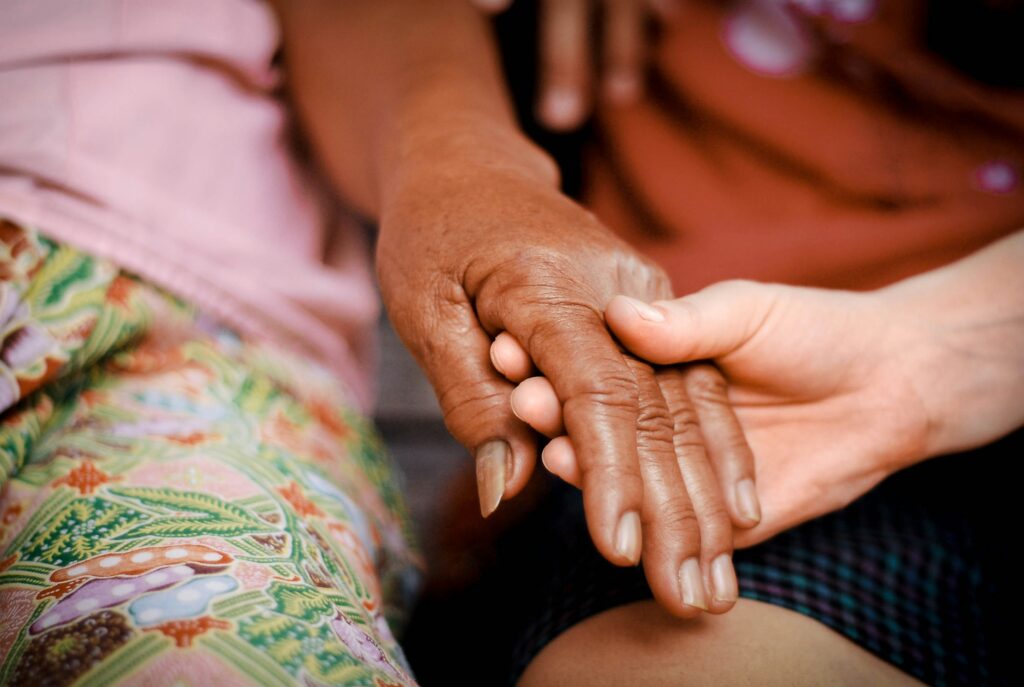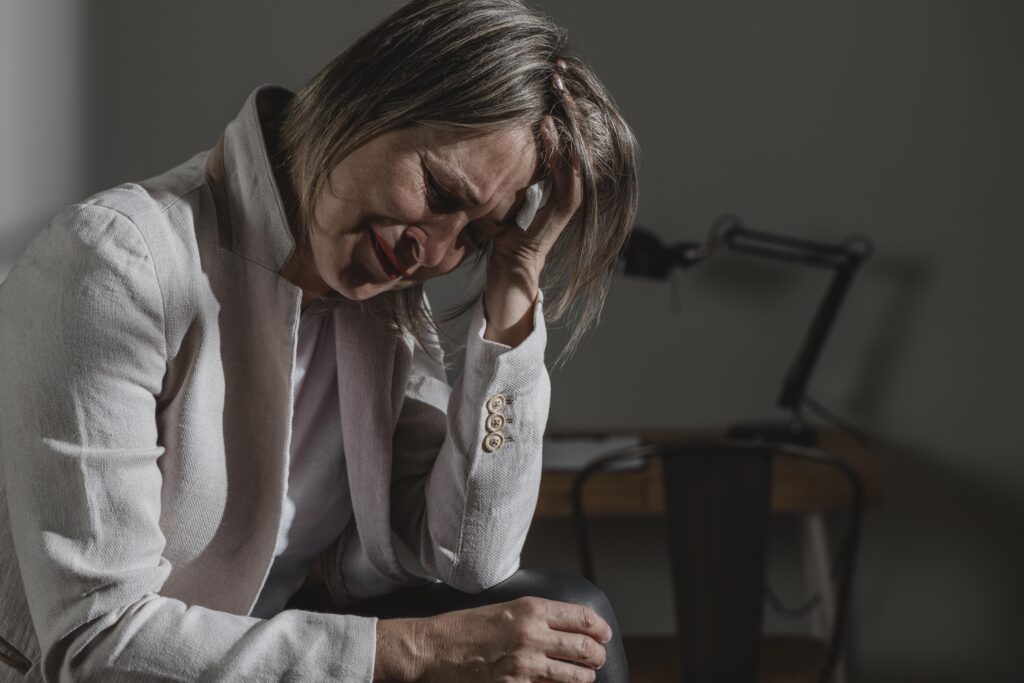Finding the Right Place

Once my brother and I accepted that our father needed to transition into Assisted Living, the next challenge was finding the right place for him. We wanted somewhere that would provide him with the care and structure he needed while still preserving his sense of independence and dignity. The search was daunting, filled with tough questions and emotional moments, but ultimately, it was a necessary step in ensuring his well-being. We started by making a list of must-haves. A place with attentive staff, engaging activities, good medical support, and—most importantly—a welcoming community. We toured several facilities, each with its own set of pros and cons. Some places felt too clinical, others too impersonal. Some had impressive amenities but lacked the warmth we knew our father needed. It became clear that this wasn’t just about finding a place with good reviews; it was about finding a place that felt right. One of the most difficult parts of the process was involving our father. We wanted his input, but we also knew that his cognitive decline made it hard for him to process the gravity of the situation. Sometimes, he resisted the idea altogether, wanting to stay in his home. Other times, he seemed open to the change but quickly forgot our conversations. It was a delicate balance—making sure he felt heard while also making the decision that was best for him. We asked every question we could think of. How was the staff trained? How did they handle medical emergencies? What activities were available to keep residents engaged? How did they ensure new residents felt at home? We also paid close attention to the residents themselves—did they seem happy? Did they interact with one another? The energy of a place was just as important as its amenities. After weeks of searching, we finally found the right place. It was warm and inviting, with a staff that genuinely cared about the residents. The facility had a good balance of independence and support, offering structured activities but also allowing residents the freedom to make their own choices. Most importantly, the people there—both staff and residents—felt like a community, not just a care center. Even with all the research and preparation, the final decision was emotional. We knew this move symbolized a new chapter, one where our father would no longer be living in the home he had known for so long. But we also knew that this was the right decision for his safety, his health, and his quality of life. In the next post, I’ll share what it was like to actually make the transition—how we helped our father adjust, the initial struggles, and the small victories that reassured us we had made the right choice.
The Tough Decisions Caregivers Face

After coming to terms with my father’s cognitive decline, my brother and I were confronted with a harsh reality: home was no longer a sustainable option. The house that had been a place of comfort and memories was now a source of stress, risk, and growing uncertainty. As much as we wanted to hold on, we knew that waiting too long to make a change could leave us with fewer and less desirable options for his care. One of the biggest concerns we faced was the need to transition him into an Assisted Living facility before his cognitive state declined further. Many Assisted Living facilities have requirements—if a resident’s cognitive impairment progresses beyond a certain point, they may be moved to Memory Care. While Memory Care provides necessary supervision, it often comes with more restrictions, less independence, and a very different living environment. We wanted our father to have as much autonomy and dignity as possible for as long as possible, and that meant making a move sooner rather than later. Selling his home was one of the most difficult and emotional steps in this process. This was the house where we grew up, where birthdays were celebrated, where countless memories were made. Sorting through his belongings felt like peeling back layers of our family history, each item a reminder of the life he had built. The logistics of preparing the house for sale—coordinating with real estate agents, dealing with legal paperwork, and handling the emotional weight of it all—was overwhelming. Through it all, my brother and I leaned on each other. There were moments of frustration, disagreements over the best approach, and nights filled with exhaustion. But we both knew that at the heart of every decision was our father’s well-being. We had to put aside our emotions and focus on what was best for him. The process of searching for an Assisted Living facility was another daunting task. We toured multiple places, each with its own set of strengths and weaknesses. We had endless questions—how involved was the staff? What was the community like? Would our father feel at home? It was a delicate balance between finding a place that met his needs while also feeling like a place he could comfortably transition into. There were no easy answers in this journey. Every choice felt like a compromise, a trade-off between what we wished could be and what reality demanded. But as difficult as these decisions were, we knew we had to make them with courage and urgency. In the next post, I’ll take you through the search for the right Assisted Living facility—the questions we asked, the challenges we faced, and the moment we knew we had found the right place for our father to call home.
The Bittersweet Reality of Recovery

When my father was diagnosed with Stage 4 lymphoma, our focus was singular: survival. Every decision, every exhausting day, was centered on getting him through treatment and keeping hope alive. Against the odds, he emerged on the other side—his body growing stronger, his cancer in remission. For a brief moment, we thought we had won. What we didn’t anticipate was that recovery would come with a different kind of battle, one we weren’t fully prepared to fight. While my father’s physical condition improved, his cognitive function declined. At first, it was small things—forgetting appointments, struggling to find the right words. But as time passed, the signs became harder to ignore. Conversations became repetitive, his problem-solving skills weakened, and tasks that once seemed simple for him became frustrating obstacles. The man who had once handled his own affairs with ease was now struggling with confusion and memory gaps that were only getting worse. This new reality placed an unexpected and immense strain on me and my brother. We had adjusted to being his caregivers during his illness, but this was different. The needs of a recovering cancer patient are one thing; the needs of a cognitively declining parent are another. There was no clear roadmap, no defined treatment plan, just a slow but steady loss of the father we once knew. Every decision now carried a new weight—one we had to navigate carefully and quickly. The hardest part was the realization that he would never return to full independence. We had held onto the hope that, once cancer was behind him, he could reclaim the life he once had. Instead, we were met with the sobering truth that this next stage would require even more from us as his children. It was a shift from crisis mode to long-term caregiving, and it came with a sense of loss we hadn’t been ready to face. As we stood at this crossroads, one thing became clear: we needed a plan, and we needed it fast. The question was, how do you prepare to take the next step when you’re still grieving the life your parent is losing? In the next post, I’ll share the difficult decisions my brother and I faced as we realized that home was no longer the safest place for our father—and the emotional weight of accepting that reality.
The Power of Compassion

My father and I had a close relationship when I was growing up. He was my protector and savior. I looked up to him for guidance and problem-solving until I became an adult. He watched me grow into an independent woman who no longer needed him in the same way. Over the years, as I became more successful and built a family of my own, something shifted. He began envying me. I often wondered why my father, who loved me dearly, wasn’t happy about my achievements. In the rush of life, I forgot the details of my childhood experiences with him. I believe I was unconsciously omitting what didn’t feel good and holding onto the idealized image I had created as a child. Everything became painfully clear when I had to care for him after his cancer diagnosis. His anger surfaced more vividly, and his old demeanor showed his true face. He was dealing with immense physical pain and depression due to his prognosis, but none of this justified the way he was treating me. The first time he yelled at me—because I had moved his glass of water from the counter to the sink—it triggered a flood of memories. His loud voice and negative comments hit me like a ton of bricks. As an adult, I suddenly felt like a five-year-old child again, unsure of how to deal with the emotional abuse. I found myself grappling with an impossible question: How do I balance compassion with boundaries? He was sick, after all. Should I walk away, knowing he needed care? Should I yell back and show him that I, too, could be as forceful as him? Or should I bring compassion into the space, ignoring my past experiences and the present unfair treatment? Wrestling with Inner Conflict My spiritual side was completely conflicted. I believed in treating myself with kindness and respect, yet here I was, enduring verbal abuse from someone I loved. This wasn’t the journey I had imagined for myself. Allowing even my father to mistreat me felt like a betrayal of my values. But how could I leave him when he needed me the most? I lost countless nights of sleep over this. By day, I felt as though I was walking on thin ice, learning to avoid topics that might annoy him. I adjusted to his flow of questions and concerns, keeping conversations shallow to avoid conflict. He was in his world, and I often became his emotional punching bag. Over time, I realized I needed to protect my well-being. I started reducing the hours I spent caring for him and allowed other family members and friends to step in. I made time for myself—treating myself to a massage or taking long walks in the park. I began journaling, reflecting on what went well each day, and releasing the negativity by attaching forgiveness to it. I reminded myself that one day, I would look back and cherish the small moments of quality time we shared, even amidst the challenges. Lessons in Compassion and Boundaries This chapter of my life taught me a profound lesson: compassion has its limits. It’s okay to say, “Not today, but maybe tomorrow.” Just because he was my father didn’t mean he had the right to mistreat me, especially when I was showing up for him wholeheartedly. Finding Support This type of situation is difficult and often embarrassing to share with friends or family. If your immediate circle cannot offer the support you need, consider joining in-person or online support groups. The last thing you want to do is store these emotions in your body, where they can act as poison. Let them out. Above all, remember that taking care of yourself is not selfish—it’s necessary. Compassion starts with yourself. Only then can you offer it to others without losing your peace. Namaste, Shab
Finding Light in Grief

For as long as I can remember, the word “grief” has carried a heavy and dark energy. I used to define it as a state of loss where hope seems impossible to find. I also thought grief applied only to the loss of a loved one, but over time, I’ve learned it encompasses more. It can be the loss of a home filled with memories or the loss of a job that someone worked tirelessly to achieve. Grief is deeply personal, and its meaning is unique to each of us. What does grief mean to you? Two decades ago, I attended a class on grief at a spiritual center in my town to support a friend. A week later, my father passed away. I don’t believe in coincidences, so I took it as a sign that the Universe was preparing me for a profound life lesson. The Beginning of Grief My father’s passing didn’t come as a surprise—he had been battling Parkinson’s disease for a year. But I can trace my grief back to the day we made his permanent residency at a nursing home official. That day, everything changed for my small family. My mother, sister and I were thrust into a new reality where one vital piece of our lives was missing. My mother felt lost at home without him. My sister, whose children had grown and moved away, became his primary caregiver. As for me, I often felt like I lived at the nursing home more than I did in my own house. I visited him regularly and spent quality time with him, yet the shadow of his impending passing loomed constantly. Losing him felt unbearable, and yet, all he could talk about was my mother, who was alone at home. His love for her remained steadfast until the very end. He even asked me to promise that I would ensure she never felt lonely after he was gone. I did my best to honor that promise. I would laugh and share stories with him, but the drive home was always filled with tears. Anger surged within me toward relatives and friends who couldn’t be bothered to visit him. Denial became my coping mechanism. I refused to acknowledge the inevitable changes heading our way. Staying present, sitting beside him, felt like the only way to bear it. The Weight of Anticipatory Grief Eventually, I sought the help of a psychologist at work. The overwhelming emotions felt unbearable. When I explained how I felt, the psychologist thought my father had already passed. She then introduced me to the concept of “anticipatory grief”—the mourning that begins before a loved one’s death. It was a revelation. I wasn’t going crazy. My anxiousness and my need to say goodbye, even while he was still alive, were part of the grieving process. Despite the emotional turmoil, there were moments when I wanted to pack his belongings and bring him home. But deep down, I knew I couldn’t provide the level of care he needed. The nursing home staff offered 24/7 medical supervision and safety measures that I couldn’t replicate. I had responsibilities at my job in the hospital, and my limitations became painfully clear. Finding Light Amidst the Darkness Looking back now, I see how fortunate we were to have spent those final moments with him. But at the time, grief felt like a relentless monster, looming over us and consuming every aspect of our lives. Whether it’s anticipatory grief or the grief that follows a loss, the darkness can feel all-encompassing. But with time—that same victorious monster—the darkness begins to lift. Little by little, light starts to seep in. During this process, it’s essential to take things one day at a time and check in with yourself. Ask questions: Am I angry today? Am I sad today? Are my emotions all over the place? Am I breathing deeply today? These small acts of self-awareness can open the door to healing. Your mind and body are incredibly intuitive; they know how to begin the healing process if you give them the space. Be patient with yourself and observe as the clouds of grief slowly start to part. The light is there, waiting for you to let it in. Namaste, Shab
Navigating New Realities and Finding Hope

The journey through my father’s Stage 4 lymphoma brought a myriad of challenges and emotions. As we faced the demands of his treatment, there were moments of hope and progress, tempered by new hurdles that tested our resolve. The balance of managing caregiving, work, and personal life became increasingly delicate as my father’s condition evolved. Initially, my father’s response to the chemotherapy and radiation treatments was promising. His resilience through the early stages of treatment gave us hope and a sense of optimism. Each successful round of treatment seemed like a small victory against the relentless progression of his illness. His determination and strength in the face of adversity were inspiring and provided a much-needed boost to our spirits. However, as the treatments continued, we began to encounter new challenges. Towards the end of his chemotherapy regimen, my father started experiencing “chemo fog”—a cognitive impairment that affected his memory, focus, and overall mental clarity. This new reality was a significant adjustment for all of us. My father’s advanced age compounded the issue, making it even more challenging to navigate. The cognitive decline added an extra layer of stress to his already complex medical situation. The emotional and physical toll of managing his care intensified. The cognitive challenges he faced were not only difficult for him but also for us as caregivers. It was painful to witness his struggles with tasks that once came easily to him. The frustration and confusion that came with chemo fog affected his quality of life and added a layer of complexity to our caregiving responsibilities. Balancing these new challenges with my ongoing work and personal life became an intricate dance. Each day required careful planning and flexibility as we adjusted to my father’s changing needs. Despite the strain, moments of relief and connection with family became even more vital. These moments offered respite from the emotional weight of caregiving and provided a space for us to regroup and recharge. Amidst the difficulties, I clung to the small victories and the strength we drew from one another. The support from my family, especially my brother, continued to be a cornerstone of our coping strategy. His assistance with my father’s care and his emotional support were invaluable during this challenging time. His presence was a constant reminder that we were not alone in this struggle. Looking ahead, the hope that kept us going was the belief in the possibility of recovery and the eventual return to a semblance of normalcy. While the road was fraught with obstacles and uncertainty, the progress we saw in my father’s condition and the moments of respite we found were sources of strength. As we faced each day, we held onto the hope that the trials of this period would ultimately lead to a future where healing and peace could be found. In reflecting on this journey, the experience underscored the importance of perseverance and the strength found in familial support. Despite the ongoing challenges, the commitment to my father’s well-being and the support of those around us provided a beacon of hope. The journey was defined by both struggle and resilience, and through it all, we continued to hold onto the promise of brighter days ahead.
Confronting a New Crisis

The news of my father’s Stage 4 lymphoma diagnosis was a devastating blow to our family. Just as we had begun to breathe easier, hoping that our recent struggles were behind us, we were thrust into a new and frightening chapter. This diagnosis, more severe than anything we had faced before, cast a shadow over the small victories we had celebrated in his recovery from Transverse Myelitis. The intensity of the new challenge was overwhelming. As the gravity of the situation sank in, the daily demands of caregiving surged to new heights. Coordinating his treatment, managing appointments, and grappling with the complex medical information became a central focus of my life once again. The emotional weight of seeing my father face such a dire prognosis was equally heavy. The hope we had clung to seemed to slip further away with each passing day. During this period, the balance I had worked so hard to achieve in my personal and professional life was disrupted. My career, which had just begun to stabilize, now faced renewed uncertainty as I struggled to juggle the increased demands of caregiving. The stress of managing my father’s illness, coupled with the need to maintain my responsibilities at work, created an immense strain. I found myself once again grappling with the challenge of keeping my professional commitments while providing the intensive care my father required. The emotional toll was profound. The fear of losing my father, combined with the strain of navigating his complex treatment, took a significant impact on my mental health. Even though I had learned to cope with stress through exercise and a focus on self-care, this new crisis tested my limits. The once-clear boundaries between work, caregiving, and personal life began to blur, and I felt as though I was caught in an unrelenting cycle of worry and exhaustion. Despite the overwhelming circumstances, I leaned heavily on the support systems around me. My brother continued to play a crucial role in managing my father’s care and providing emotional support. His steadfast presence was a source of comfort and stability amidst the chaos. Additionally, the resilience I had developed during previous challenges became a vital resource. Drawing on the strength and coping strategies I had cultivated, I faced this new crisis with a determined resolve, even as I struggled to find a new equilibrium. The journey with my father’s lymphoma was a harsh reminder of the unpredictability of life. Just when we thought we had found a semblance of normalcy, we were faced with a renewed struggle. Each day brought its own set of challenges and uncertainties, and the path forward was fraught with difficulty. Yet, even in the face of this daunting reality, I remained committed to navigating this tumultuous period with as much grace and resilience as I could muster. As we moved forward, the hope that had once seemed so tangible was now intertwined with the reality of ongoing battles. While the road ahead was daunting, I found solace in the strength of my support system and the determination to provide the best care for my father. The journey was far from over, but each step was taken with the hope that we could find moments of peace and clarity amid the ongoing struggles.
A Hopeful Recovery and Life’s Balancing Act

As my father’s health improved from his battle with Transverse Myelitis, our family began to feel a glimmer of hope. After enduring years of medical crises and caregiving demands, we cautiously believed that this would be the last major health issue he would face. His gradual recovery provided a sense of optimism and a much-needed respite from the relentless pressures that had dominated our lives. With my father’s condition stabilizing, I found myself trying to regain a sense of normalcy. Reengaging with my career became a priority, and I was determined to restore balance to my life. My daughter’s growing independence offered me some flexibility, allowing me to invest more time and energy into my work. It was both challenging and relieving to refocus on my career, as it provided me with a renewed sense of purpose and control after years of managing the chaotic demands of caregiving and single parenthood. At home, I worked diligently to strike a balance between my professional responsibilities and my father’s ongoing care. My brother, a dedicated high school math teacher, emerged as an instrumental support system during this period. His assistance with my father’s care was invaluable, and his emotional support helped anchor me amidst the ongoing challenges. His presence offered much-needed relief and comfort, and I was deeply grateful for his unwavering support during these trying times. In addition to focusing on my father’s care, I also prioritized my own well-being. Exercise became a crucial outlet for managing stress and maintaining my mental health. It was more than just a physical activity; it served as a vital escape and a way to recharge. This routine helped me stay resilient and better equipped to handle the demands of my daily life. As life began to stabilize, I dared to envision a future where we could enjoy a semblance of normalcy once again. My daughter was thriving, my career was back on track, and my father’s recovery was progressing positively. For the first time in years, it felt as though we might finally experience some relief and stability after enduring so much. However, just as I started to believe that the worst was behind us, we were hit with devastating news: my father was diagnosed with Stage 4 lymphoma. The unexpected diagnosis was a crushing blow, shattering the fragile sense of stability we had worked so hard to rebuild. This new challenge set us on yet another tumultuous path, testing the resilience and strength that I had painstakingly developed over the years. The journey ahead was uncertain, but it was clear that our trials were far from over.
Navigating My Father’s Long Recovery

A Gradual Road to Recovery After the initial shock of my father’s Transverse Myelitis diagnosis, the slow road to recovery began. His partial paralysis changed our lives, but over time and with consistent rehabilitation, he started regaining some mobility. Even small victories—like walking with assistance—were monumental, though his progress was often slow and marked by setbacks. His determination to regain independence became a source of motivation for both him and the family. Watching him endure physical therapy sessions reminded me of his resilience, even as we faced frustrating plateaus in his recovery. Coordinating Care Amid the Chaos Though my brother and I shared caregiving duties, much of the coordination still fell on me. Balancing my father’s medical appointments, physical therapy, and insurance was a demanding task. Despite having navigated this process before with my mother, it didn’t make it any easier. My brother, a high school math teacher, played a pivotal role in providing daily care for our father, allowing me to focus on logistical tasks. His steady presence and emotional support were invaluable as I juggled caregiving with my job and my role as a mother. Balancing Personal Life and Caregiving Caring for my father while raising my daughter felt like an impossible juggling act. The weight of family obligations left me feeling exhausted, even as I tried to maintain a balance for my daughter’s sake. Weekends were filled with caregiving responsibilities and attempts to create meaningful moments with her. Exercise continued to be a crucial way for me to cope, helping me release stress and recharge. I knew I had to take care of myself if I wanted to continue caring for my father and my child. Rediscovering Small Joys Despite the challenges, I began to find small moments of joy. Whether it was watching my daughter interact with her grandfather or witnessing my father take a few independent steps, these moments reminded me of the rewards of caregiving. Though exhausting, it was an act of love that deepened my relationships with both my father and my brother. Looking to the Future As my father’s health stabilized, I began to feel cautiously optimistic. While the future remained uncertain, I knew the resilience I’d built would help me navigate whatever lay ahead. With my brother’s support and my own coping mechanisms in place, I felt more equipped to handle caregiving while also reclaiming aspects of my own life.
The Weight of Caregiving—Caring for My Father

A New Caregiving Role After my father was diagnosed with Transverse Myelitis, my life shifted yet again. Just when I had found some stability after my mother’s passing and the conclusion of my difficult divorce, I was pulled back into caregiving—this time for my father. His sudden partial paralysis brought on by the rare condition left him dependent on others. With him living two hours away, the challenge felt even greater. The Emotional Toll Watching my father struggle with basic tasks was heartbreaking. It stirred up memories of my mother’s illness, reviving emotions I had hoped were behind me. Balancing my father’s needs with my own responsibilities as a mother and working professional quickly became overwhelming. The long drives to his appointments and the coordination of his care consumed much of my time and energy. Emotionally, it felt like I was being pulled back into a cycle I had just escaped. Support from My Brother Thankfully, I wasn’t alone in caring for my father. My brother, a high school math teacher, was incredibly supportive during this time. Despite his own demanding schedule, he often stepped in to help with Dad’s care, taking on many responsibilities that would have been impossible for me to handle alone. He was also instrumental in offering me much-needed emotional support, helping me talk through the guilt, stress, and exhaustion I felt. His presence made the burden more bearable, and I’m not sure how I would have managed without him. Balancing Career and Caregiving Though I had rebuilt my career and life after the divorce, my father’s needs began to affect my ability to focus at work. Weekends that had once been for family time or personal recovery became devoted to managing his care. The strain on my career and personal life was undeniable, and I felt the same juggling act I had endured with my mother’s illness repeating itself. Finding Moments of Relief Exercise remained a critical outlet for me. Whether it was a long walk or a tough workout, it gave me a way to release the stress of caregiving. I also leaned on close friends and, of course, my brother for emotional support. This network of support made a difficult time more manageable and reminded me that I didn’t have to go through it alone. Letting Go of Guilt There were moments of frustration—feelings of resentment not towards my father, but towards the situation itself. After years of building myself back up, I was again navigating the exhausting world of caregiving. Accepting those mixed emotions, and sharing them with my brother, helped me let go of the guilt and realize that feeling conflicted didn’t mean I wasn’t a good daughter or caregiver. Moving Forward, One Day at a Time As my father’s condition progressed, I tried to focus on the time we had together rather than the overwhelming demands of his care. With my brother’s help and the support of professional caregivers, I learned to prioritize what truly mattered. Though caregiving was still difficult, it became an act of love rather than a burden, and I began to move forward—one day at a time.
